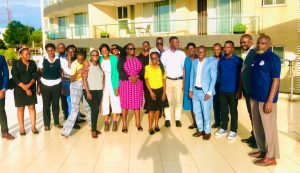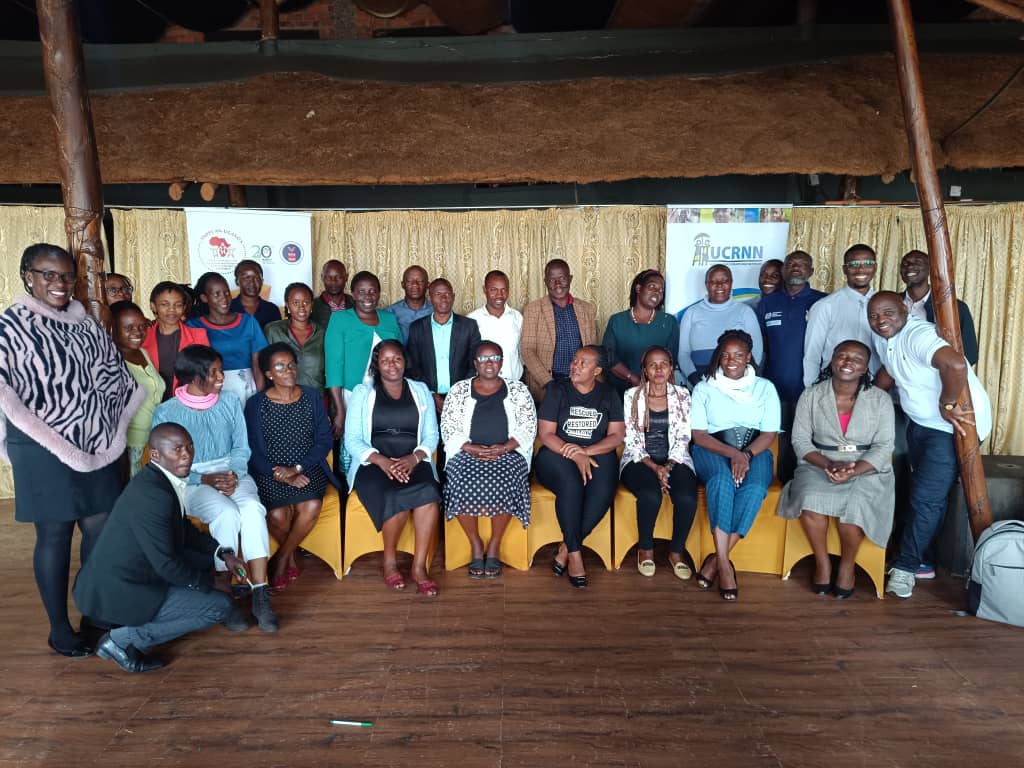Civil Society Organisations (CSOs) in Uganda are making significant strides in the fight against child labour, these CSOs operate under the umbrella structure of the Uganda Child Rights NGO Network (UCRNN). Leveraging the existing network, the African Network for the Prevention and Protection Against Child Abuse and Neglect (ANPPCAN) and the Global March Against Child Labour (GMACL) mobilised the CSO coalition to protect children’s rights and eliminate child labour. The CSOs have successfully unified their voices to strengthen their collective efforts for achieving Sustainable Development Goal 8.7, focusing on prohibiting the worst forms of child labour and promoting evidence-based advocacy through the Area-based Approach (ABA).
With an active membership of over 30 child rights organisations, the coalition addresses various issues including child labour, child protection, sexual violence, child trafficking, street children, and safe migration. This broad representation ensures that the voices of children, survivors, and child labourers are heard and considered in advocacy and policymaking. Key strategies include calling for stronger child protection laws, promoting Child Labour Free Zones in high-risk areas, pushing for increased budget allocations for remediation efforts and enhancing collaboration between government agencies, businesses, trade unions and employers to accelerate child labour eradication efforts. Importantly, the coalition prioritises education and participation of children and youth in advocacy efforts, ensuring their demands are amplified and addressed.

The CSO coalition plays a critical role in bridging grassroots initiatives with national aspirations, amplifying the collective impact, and ensuring a cohesive and powerful voice in advocacy. The joint mobilisation and unified CSO voices can significantly enhance their access to key government entities as well as the private sector and exert more influence and pressure to act against child labour. It also strengthens their credibility and legitimacy in the eyes of stakeholders, which can facilitate more productive partnerships and negotiations with governments and the private sector. Additionally, the experiences, resources and strengths of different civil society organisations enhance the coalition’s capacity to address complex issues related to child labour from multiple angles, such as legal, social, educational, and economic perspectives.
The coalition’s efforts have led to significant achievements, such as the integration of the Area-Based Approach into Uganda’s Pathfinder priority areas and going forward, into the national policies to implement Child Labour Free Zones in the Alliance 8.7 roadmap. A notable example of the collective action led by the coalition was during the World Day Against Child Labour, where a unified CSO statement was read, representing the collective asks of all CSOs in Uganda. This statement called on the government to act on commitments to address child labour, implement effective measures under Alliance 8.7, and establish robust policies and frameworks to protect children.
Through active mobilisation of CSOs, trade unions, government bodies, community leaders, parents, teachers, and youth workers, the coalition has revitalised the child rights landscape in Uganda. Previously fragmented efforts have now become more cohesive, vibrant, and impactful. This newfound solidarity and momentum have strengthened their ability to influence policy and bring about meaningful change. Their success underscores the power of coordinated and collective action, leading to lasting progress in protecting children’s rights.
Global March team with inputs from ANPPCAN



